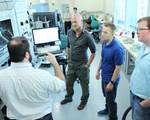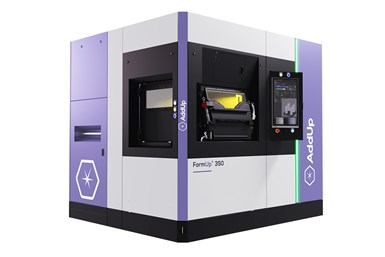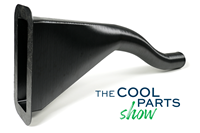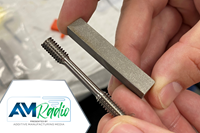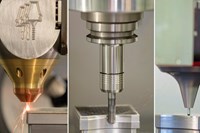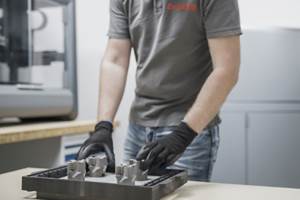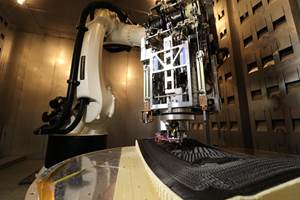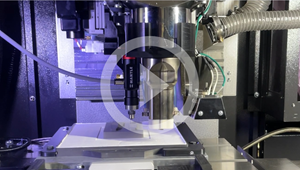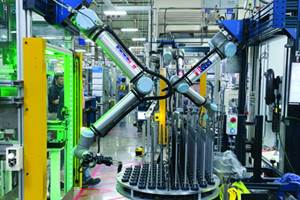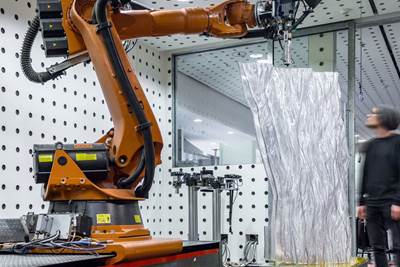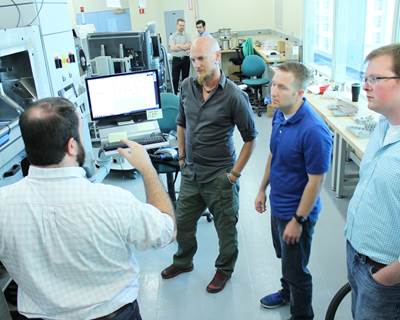AddUp, WBA Investigate Additive Manufacturing for Moldmaking Tooling Study
The additive manufacturing (AM) tooling study focused on six select companies, offering them the opportunity to test the introduction of AM and specifically implement the technical and economic advantages of AM technology for their injection molds.
AddUp and the WBA Aachener Werkzeugbau Akademie are proving the benefits of metal additive manufacturing (AM) for moldmaking to six toolmaking companies through its tooling study. Launched in January 2023, this consortium study has delivered the first prototypes of injection molds with optimized internal cooling channels.
AddUp is a global metal additive manufacturing OEM for powder bed fusion (PBF) machines, which established its AM Tooling Competence Center in Aachen in partnership with the Werkzeugbau-Akademie (WBA) in early 2023. This facility, also serving as AddUp’s German subsidiary, was created to accelerate the adoption of metal AM by tooling companies. AddUp has extensive experience in the tooling industry developing applications and materials best suited for mold and tool production.
The AM Tooling Competence Center provides a resource for tooling manufacturers to develop their applications and partner with a global leader in PBF technology. The facility is equipped with a FormUp 350 PBF machine and toolmakers have the opportunity to submit application cases for evaluation and to study all aspects of their project, from the design applied to PBF, to the profitability analysis and the study of series production.
AddUp and the WBA are conducting an AM tooling study with six select companies. This first group of companies include Pöppelmann, Siebenwurst, Harting, Zahoransky, GIRA and FRAMAS. The study offered them the opportunity to test the introduction of AM and to specifically implement the technical and economic advantages of AM technology for their injection molds.
The study is supported by companies like iQTemp (AM design and simulation of cooling channels), Deutsche Edelstahlwerke (AM materials), 3D Laser BW (specialist in mold inserts with near-contour cooling systems and AM service provider), Siemens NX and institutes such as Fraunhofer ILT and ACAM.
Traditionally, injection molding manufacturers must deal with certain constraints inherent to the manufacturing of their molds. The mold’s performance is directly related to its ability to cool the injected parts. PBF technology is adapted to create complex cooling channels, positioned as close as possible to the mold walls. By adapting the shape of the channels to cool the surface of the part more homogeneously, manufacturers can see improved quality and experience higher productivity with a reduction of cooling and cycle times.
The choice of material is critical for toolmakers, as the molds must meet high requirements especially in terms of corrosion resistance, heat conductivity and fatigue. AddUp has 20 years of AM experience with Maraging 300, which is successfully used in series production by Michelin to manufacture more than a million tire molds sipes per year. Additionally, AddUp has developed AM build parameters for the AISI 420 corrosion-resistant tool steel, also referred to in the German standard as 1.2083, which is now available as an AddUp standard additive material for injection molding in the future. AddUp is committed to supporting the tooling industry and continues to develop other materials to maximize productivity and efficiency.
The six companies that have participated in the AM Tooling Study have identified their own case studies for parts which have been manufactured using traditional machining processes. AddUp, with the support of its partners, has evaluated each of these parts to determine how they could be optimized with AM. Each part was then designed for AM, optimized for conformal cooling and manufactured on AddUp’s 4-laser FormUp 350. Postprocessing was then completed by the tooling company itself or by the WBA. Each of these ready-to-use molds were then sampled on the respective tooling company’s production lines and the comparative data will be provided to the WBA. In the 4th quarter of 2023, the results of this first Tooling Study will be officially published by the WBA during its General Assembly.
- Check out this article on AddUp’s participation in a $1.5 million USAF research on IN-718 additive manufacturing. AddUp is partnering with Zeda to provide critical project support to provide the USAF with a set of manufacturing guidelines to maximize the capabilities of LPBF to meet fleet readiness and sustainment goals.
- Read about AddUp collaborating with Dassault Systèmes on an aerospace digital continuity project. The companies are collaborating on the Aeroprint project, which aims to establish a certified additive manufacturing pilot line for aeronautics.
Related Content
Taking the Leap into Additive Manufacturing
SolidCAM’s partnership with Desktop Metal, and its in-depth experience in combined metal 3D printing and CNC finishing, is aimed at making additive manufacturing accessible and profitable for job shops and other manufacturers.
Read MoreHow 3D Printing Will Change Composites Manufacturing
A Q&A with the editor-in-chief of CompositesWorld explores tooling, continuous fiber, hybrid processes, and the opportunities for smaller and more intricate composite parts.
Read More3D Printing Molds With Metal Paste: The Mantle Process Explained (Video)
Metal paste is the starting point for a process using 3D printing, CNC shaping and sintering to deliver precise H13 or P20 steel tooling for plastics injection molding. Peter Zelinski talks through the steps of the process in this video filmed with Mantle equipment.
Read MoreHow AM Enables Cobot Automation for Thyssenkrupp Bilstein (Includes Video)
The shock absorber maker has responded to its staffing shortages through extensive use of collaborative robots. In-house 3D printing makes this possible by providing the related hardware needed to complete the cobot-automated cells.
Read MoreRead Next
At General Atomics, Do Unmanned Aerial Systems Reveal the Future of Aircraft Manufacturing?
The maker of the Predator and SkyGuardian remote aircraft can implement additive manufacturing more rapidly and widely than the makers of other types of planes. The role of 3D printing in current and future UAS components hints at how far AM can go to save cost and time in aircraft production and design.
Read More3D Printing Brings Sustainability, Accessibility to Glass Manufacturing
Australian startup Maple Glass Printing has developed a process for extruding glass into artwork, lab implements and architectural elements. Along the way, the company has also found more efficient ways of recycling this material.
Read More4 Ways the Education and Training Challenge Is Different for Additive Manufacturing
The advance of additive manufacturing means we need more professionals educated in AM technology.
Read More



